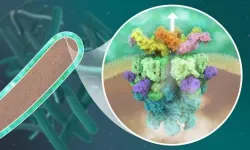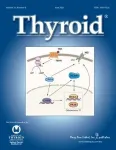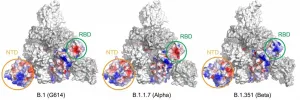(Press-News.org) CAMBRIDGE, MA - Boosting production of biofuels such as ethanol could be an important step toward reducing global consumption of fossil fuels. However, ethanol production is limited in large part by its reliance on corn, which isn't grown in large enough quantities to make up a significant portion of U.S. fuel needs.
To try to expand biofuels' potential impact, a team of MIT engineers has now found a way to expand the use of a wider range of nonfood feedstocks to produce such fuels. At the moment, feedstocks such as straw and woody plants are difficult to use for biofuel production because they first need to be broken down to fermentable sugars, a process that releases numerous byproducts that are toxic to yeast, the microbes most commonly used to produce biofuels.
The MIT researchers developed a way to circumvent that toxicity, making it feasible to use those sources, which are much more plentiful, to produce biofuels. They also showed that this tolerance can be engineered into strains of yeast used to manufacture other chemicals, potentially making it possible to use "cellulosic" woody plant material as a source to make biodiesel or bioplastics.
"What we really want to do is open cellulose feedstocks to almost any product and take advantage of the sheer abundance that cellulose offers," says Felix Lam, an MIT research associate and the lead author of the new study.
Gregory Stephanopoulos, the Willard Henry Dow Professor in Chemical Engineering, and Gerald Fink, the Margaret and Herman Sokol Professor at the Whitehead Institute of Biomedical Research and the American Cancer Society Professor of Genetics in MIT's Department of Biology, are the senior authors of the paper, which appears today in Science Advances.
Boosting tolerance
Currently, around 40 percent of the U.S. corn harvest goes into ethanol. Corn is primarily a food crop that requires a great deal of water and fertilizer, so plant material known as cellulosic biomass is considered an attractive, noncompeting source for renewable fuels and chemicals. This biomass, which includes many types of straw, and parts of the corn plant that typically go unused, could amount to more than 1 billion tons of material per year, according to a U.S. Department of Energy study -- enough to substitute for 30 to 50 percent of the petroleum used for transportation.
However, two major obstacles to using cellulosic biomass are that cellulose first needs to be liberated from the woody lignin, and the cellulose then needs to be further broken down into simple sugars that yeast can use. The particularly aggressive preprocessing needed generates compounds called aldehydes, which are very reactive and can kill yeast cells.
To overcome this, the MIT team built on a technique they had developed several years ago to improve yeast cells' tolerance to a wide range of alcohols, which are also toxic to yeast in large quantities. In that study, they showed that spiking the bioreactor with specific compounds that strengthen the membrane of the yeast helped yeast to survive much longer in high concentrations of ethanol. Using this approach, they were able to improve the traditional fuel ethanol yield of a high-performing strain of yeast by about 80 percent.
In their new study, the researchers engineered yeast so that they could convert the cellulosic byproduct aldehydes into alcohols, allowing them to take advantage of the alcohol tolerance strategy they had already developed. They tested several naturally occurring enzymes that perform this reaction, from several species of yeast, and identified one that worked the best. Then, they used directed evolution to further improve it.
"This enzyme converts aldehydes into alcohols, and we have shown that yeast can be made a lot more tolerant of alcohols as a class than it is of aldehydes, using the other methods we have developed," Stephanopoulos says.
Yeast are generally not very efficient at producing ethanol from toxic cellulosic feedstocks; however, when the researchers expressed this top-performing enzyme and spiked the reactor with the membrane-strengthening additives, the strain more than tripled its cellulosic ethanol production, to levels matching traditional corn ethanol.
Abundant feedstocks
The researchers demonstrated that they could achieve high yields of ethanol with five different types of cellulosic feedstocks, including switchgrass, wheat straw, and corn stover (the leaves, stalks, and husks left behind after the corn is harvested).
"With our engineered strain, you can essentially get maximum cellulosic fermentation from all these feedstocks that are usually very toxic," Lam says. "The great thing about this is it doesn't matter if maybe one season your corn residues aren't that great. You can switch to energy straws, or if you don't have high availability of straws, you can switch to some sort of pulpy, woody residue."
The researchers also engineered their aldehyde-to-ethanol enzyme into a strain of yeast that has been engineered to produce lactic acid, a precursor to bioplastics. As it did with ethanol, this strain was able to produce the same yield of lactic acid from cellulosic materials as it does from corn.
This demonstration suggests that it could be feasible to engineer aldehyde tolerance into strains of yeast that generate other products such as diesel. Biodiesels could potentially have a big impact on industries such as heavy trucking, shipping, or aviation, which lack an emission-free alternative like electrification and require huge amounts of fossil fuel.
"Now we have a tolerance module that you can bolt on to almost any sort of production pathway," Stephanopoulos says. "Our goal is to extend this technology to other organisms that are better suited for the production of these heavy fuels, like oils, diesel, and jet fuel."
INFORMATION:
The research was funded by the U.S. Department of Energy and the National Institutes of Health.
Written by Anne Trafton, MIT News Office
Tuberculosis is one of the top ten causes of death worldwide, infecting about one-quarter of the world's population. Although it is treatable, the rise of multidrug-resistant tuberculosis poses a major threat to global health security, and has been declared by the World Health Organization as a global health emergency. Reduced access to diagnosis and treatment during the COVID-19 pandemic is expected to dramatically increase the number of tuberculosis infections. This will set global efforts to tackle the disease back several years.
Tuberculosis is caused by infection with Mycobacterium tuberculosis: a bacterium that infects human lungs and other organs by using complex molecular ...
When Winter Storm Uri hit, many Texans lost power from February 14-20, resulting in losses of lives and economic activity, and damages to their homes that for some are still not completely repaired. Now, four months later as demand for electricity has increased at the start of the summer amid tight supply, Texans continue to prioritize improvements to the power grid, albeit with doubt as to whether the Texas Legislature and Governor can get the job done.
In a survey by the Hobby School of Public Affairs and UH Energy at the University of Houston fielded between May 13-24, 1,500 individuals in Texas aged 18 and older responded to a series of questions regarding their experience during Winter Storm Uri and their evaluation ...
BOSTON - At the recent 2021 Annual Scientific Sessions of the American Diabetes Association, researchers from Massachusetts General Hospital (MGH) presented positive updates on their trials of the bacillus Calmette-Guérin (BCG) vaccine to safely and significantly lower blood sugars.
In type 1 diabetes, an autoimmune disease which currently has no cure, T cells attack the pancreas and destroy its ability to create insulin, a hormone vital in allowing glucose to enter cells to produce energy. In prior work, Denise Faustman, MD, PhD, director ...
A new study by UC Davis researchers confirms the low likelihood that SARS-CoV-2 contamination on hospital surfaces is infectious. END ...
Scientists from the University of Michigan have developed an innovative way to use NASA satellite data to track the movement of tiny pieces of plastic in the ocean.
Microplastics form when plastic trash in the ocean breaks down from the sun's rays and the motion of ocean waves. These small flecks of plastic are harmful to marine organisms and ecosystems. Microplastics can be carried hundreds or thousands of miles away from the source by ocean currents, making it difficult to track and remove them. Currently, the main source of information about the location ...
New Rochelle, NY, June 24, 2021—The American Thyroid Association, the European Association of Nuclear Medicine, the European Thyroid Association, and the Society of Nuclear Medicine and Molecular Imaging released a joint statement on three key topics addressing controversies in thyroid cancer care. The joint statement is published in the peer-reviewed journal Thyroid®, the official journal of the American Thyroid Association® (ATA®).Click here to read the statement now.
An inter-societal working group addressed the current controversies and evolving concepts in three main areas: peri-operative risk stratification; the role of diagnostic radioactive iodine ...
Toronto, ON - Despite research showing associations between anabolic steroid use and criminal offending, the possibility of a similar association between legal performance-enhancing substance use, such as creatine, and criminal offending remained unknown. A new study published online in the journal Drug and Alcohol Dependence now shows that both forms of performance-enhancing substance use is longitudinally associated with criminal offending among U.S. adults.
The study, which analyzed a sample of over 9,000 U.S. participants from the National Longitudinal Study ...
Liza Makowski, PhD, professor in the Department of Medicine and the UTHSC Center for Cancer Research, has long been interested in how the immune system is altered by obesity and how this impacts cancer risk and treatment.
"Obesity is complex, because it can cause both inflammation and activate counter-inflammation pathways leading to immunosuppression," Dr. Makowski said. "How obesity impacts cancer treatments is understudied."
Obese patients with breast cancer often have worse outcomes than non-obese patients. However, exciting developments are being made in other cancers that may also hold promise for treating breast cancer. In studies of ...
"Fit for 55": under this heading, the EU Commission will specify the implementation of the European Green Deal on 14 July. This refers to the more ambitious climate policy announced, with 55 instead of 40 percent emission reduction by 2030 (relative to 1990), and net-zero emissions in 2050. Coordination between the 27 EU states is expected to be difficult since unanimity is usually required here for sweeping changes. An economic model study by the Berlin-based climate research institute MCC (Mercator Research Institute on Global Commons and Climate Change) and the Potsdam Institute for Climate Impact Research (PIK) examines how to achieve good results under such conditions. The study has just been published in the renowned Journal of Environmental ...
New SARS-CoV-2 variants are spreading rapidly, and there are fears that current COVID-19 vaccines won't protect against them. The latest in a series of structural studies of the SARS-CoV-2 variants' "spike" protein, led by Bing Chen, PhD, at Boston Children's Hospital, reveals new properties of the Alpha (formerly U.K.) and Beta (formerly South Africa) variants. Of note, it suggests that current vaccines may be less effective against the Beta variant.
Spike proteins, on the surface of SARS CoV-2, are what enable the virus to attach to and enter our cells, and all current vaccines are directed against them. The new study, published in Science on June 24, used cryo-electron microscopy (cryo-EM) ...




